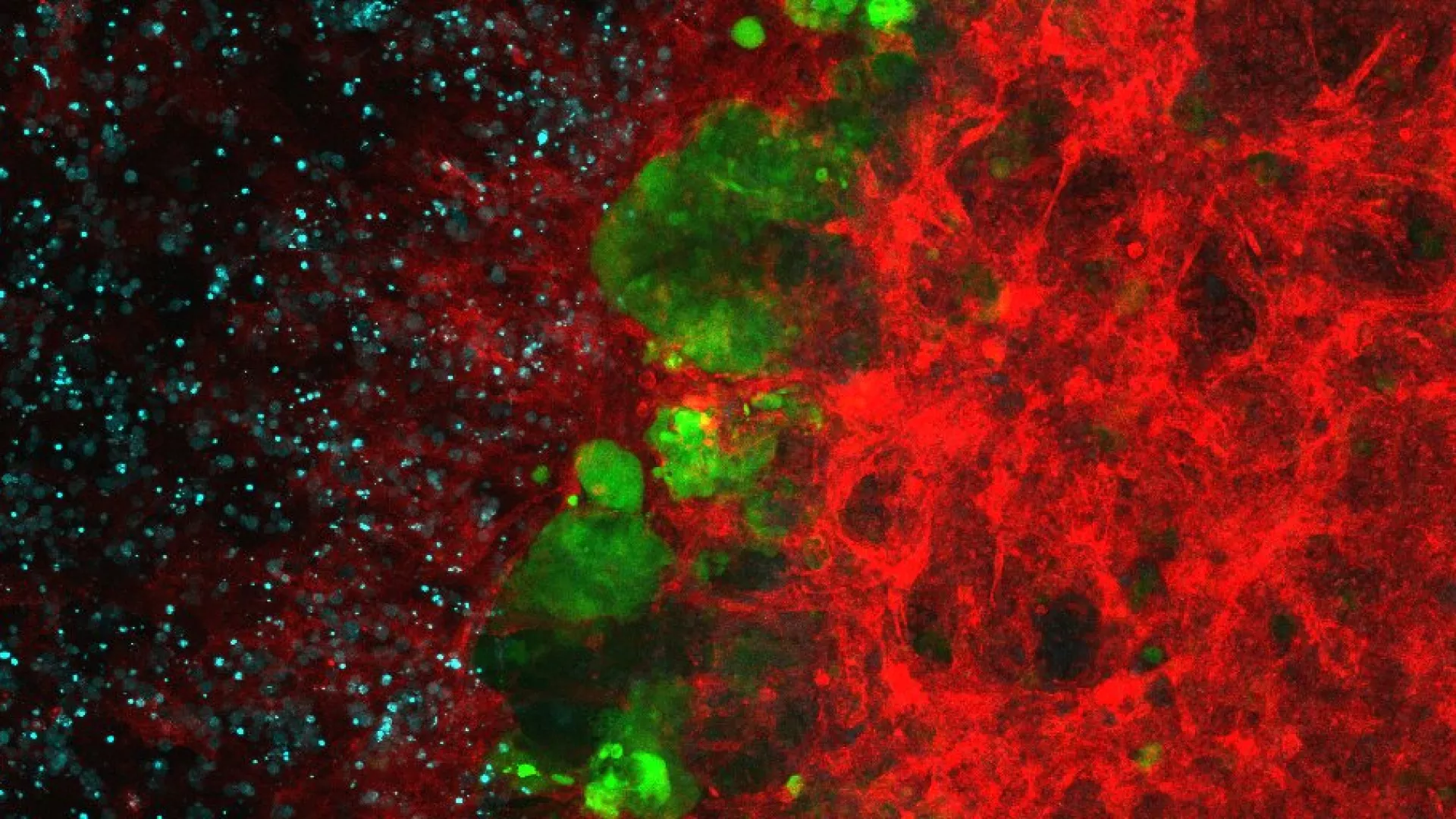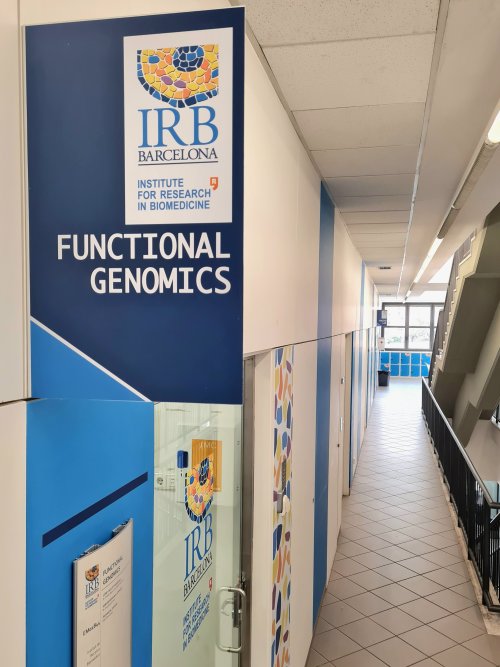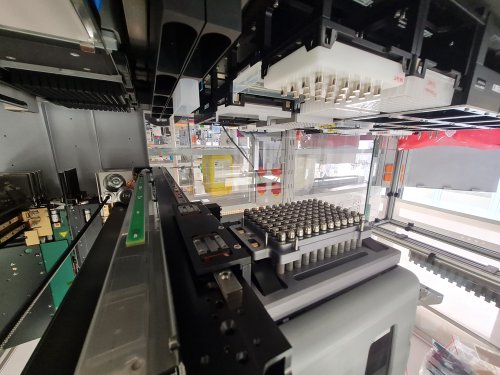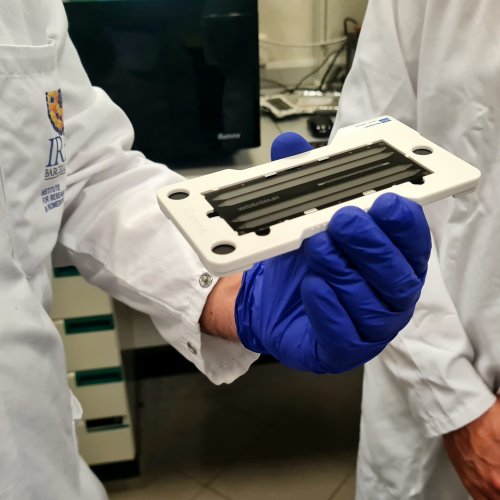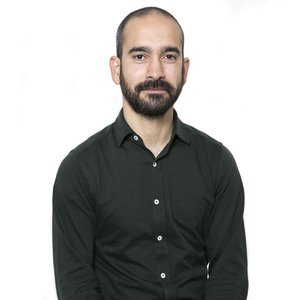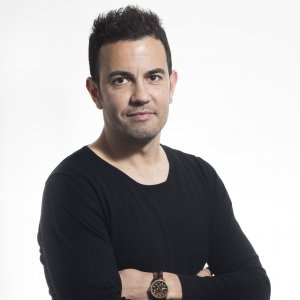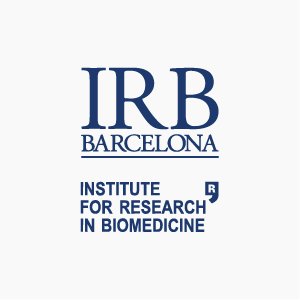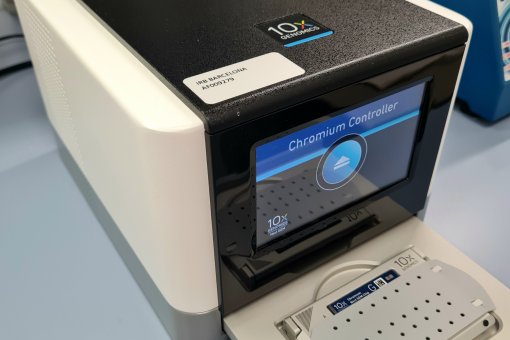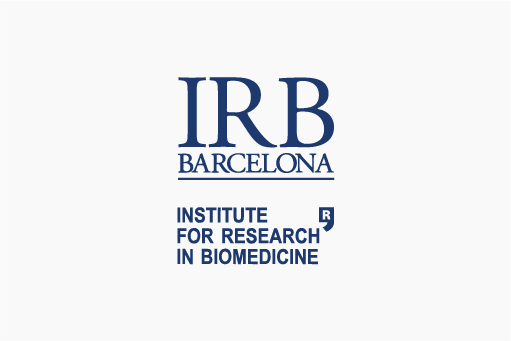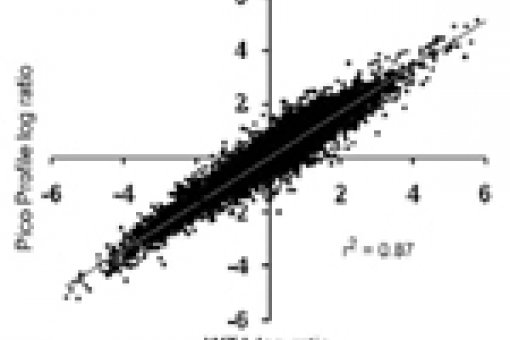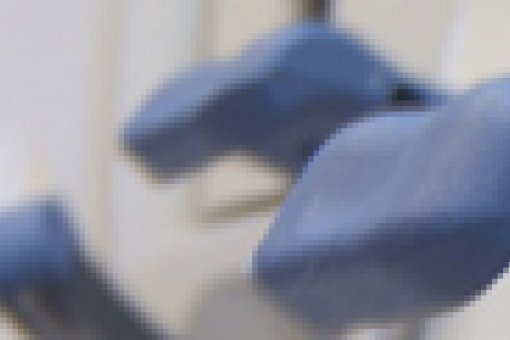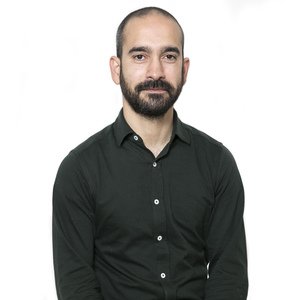
Research information
Background
The Functional Genomics Core Facility (FGCF) at the Institute for Research in Biomedicine (IRB Barcelona) provides comprehensive support for bulk and single-cell genomics and transcriptomics projects. Our facility supports the entire IRB Barcelona research community, but also other scientists and groups from academia and industry.
We provide tailored solutions for a wide range of projects, including those with limited amounts of sample or samples whose quality is compromised. We also offer a comprehensive portfolio of single-cell solutions to all researchers interested in applying transcriptomics and epigenomics in their research programmes. The FGCF can provide support for the following projects:
- Bulk Transcriptomics (mRNA-seq, lncRNA-seq, smallRNA-seq (incl. miRNA-seq, tRNA-seq)
- Single-cell mRNA Sequencing and Multiomics using 10X Genomics 3’, 5’, ATAC, Multiome or Immune profiling applications; Singleron 3’ GEXSCOPE, FOCUSCOPE and SCIRCLE full length immune profiling
- Whole-Genome Sequencing (WGS). We also collaborated with an IRB Barcelona research group for Pool-seq experiments
- Chromatin Immunoprecipitation and Sequencing (ChIP-seq) and Cleavage Under Targets and Release Using Nuclease (CUT&RUN)
- RNA Immunoprecipitation and Sequencing (RIP-seq). We also collaborate with an IRB Barcelona research group for ribosome profiling experiments.
Bulk Assay for Transposase-Accessible Chromatin with Sequencing (ATAC-Seq) validated internally with 2,500 – 50,000 cells - High‐Throughput Chromosome Conformation Capture (Hi-C/3C-Seq)
- Amplicon Sequencing and Targeted Capture (mostly consultancy, primer design and PCR optimization)
- Walk-in qPCR (QUantStudio 6 Pro)
- Illumina Sequencing on NextSeq550 (nonpatterned flow cell ideal for seuqnecing of single-index libraries) and NextSeq2000 (patterned flow-cell for larger scale sequencing projects)
- Automated library preparation with Hamilton Microlab Star (subject to protocol availability)
Reach out to us for details about our portfolio, examples, sample requirements or any other question (genomics@irbbarcelona.org).
What you can expect from us:
- A bi-directional dialogue focused on customized solutions.
- Agile project management to ensure that your requirements are met and easily adapted to last-minute modifications.
- Availability to deploy pilot experiments to obtain preliminary data, test hypotheses, troubleshoot methodologies, or implement new procedures of strategic relevance
- End-to-end solutions and streamlined communication with the Biostatistics/Bioinformatics Core Facility or with your appointed bioinformatician.
- Transparent and comprehensive sample processing and quality control reports.
- Prioritary processing for urgent projects (subject to internal evaluation).
What our users say about us:
“Thank you for all your help. I think that the unit you guys are operating is an example for how genomics should work. Thank you for all the help. I will keep you posted about everything” [Post-doc from the Cellular Plasticity and Disease Lab]
“Muchas gracias por el feedback, es importante para nosotros” [PI Comparative Genomics]
“Me salvaste en un momento de pánico. Mi gracias” [Post-doc from Growth Control and Cancer Metastasis Lab]
“Thank you so much for the fast and fantastic work (as always!)” [another Post-doc from the Cellular Plasticity and Disease Lab]
“You are fast!!!!” [PI Cellular Plasticity and Disease Lab]
“A big THANKS to you and your Team -we can say that the ATAC has worked well (at least in a technical sense at this stage). Its a great relief! Next, we will try to understand if the expt worked in a biological sense, and this will take more time. It was a monster expt, with that risk of novelty and scale -but you have executed it very well!” [an yet another post-doc from the Cellular Plasticity and Disease Lab]
Selected publications
Projects
SCENTINEL is a collaborative research initiative funded under the European Union's Horizon Europe program, aimed at advancing the capabilities of the Foundation of Research and Technology-Hellas (FORTH) in Greece through the development of genomics and bioinformatics infrastructure using invertebrate tumor models relevant to human diseases. Its goals include enhancing single-cell technology expertise, fostering EU-wide scientific collaborations, and elevating FORTH's global research stature. The project also involves the IRB Barcelona Functional Genomics Core Facility (FGCF), which supports SCENTINEL by facilitating training in single-cell sequencing to ensure the sustainability and advancement of FORTH's research capabilities
CERCAGINYS és la plataforma d’accés a les infraestructures científiques i tècniques dels 41 centres CERCA. La iniciativa vol optimitzar l’accés a aquestes instal·lacions per a tota la comunitat científica i tecnològica i, molt especialment, vol evidenciar la possibilitat que el sector privat empresarial i industrial també pot fer-ne ús, accedint, així mateix, als serveis de personal tècnic altament qualificat. La proposta forma part d’un projecte més ampli, vinculat al Pla d’Acció d’Infraestructures finançat pel Ministeri de Ciència i Innovació a través de la I-CERCA.

Services
The FGCF provides in-house genome-wide expression and mutation analysis services to researchers in public institutes and private companies. We are located in room 1B44 of the ‘Cluster I’ building at the ‘Parc Cientific de Barcelona’. If you are interested in a customised solution not listed below, please contact us at genomics@irbbarcelona.org. We look forward to learning about your projects and working side-by-side with you to overcome any experimental challenge.
If you are ready to submit your samples for analysis, please fill out the CORREPONDING SAMPLE SUBMISSION SHEET in the ‘Policies and Forms’ tab below. Alternatively, feel free to reach out to us and schedule an appointment.
- Consultancy and Experimental Design: Discuss your project with us and receive information about sample requirements and recommendations for your experimental design. This appointment is optional but highly recommended. You may book an appointment HERE.
- Quality Control of Extracted Nucleic Acids, Libraries, and Cells: All your samples will be subjected to quality control before processing, thereby ensuring NGS libraries of the highest quality. We use LUNA-FL, Nanodrop, Qubit, Bioanalyzer, TapeStation and QuantStudio 6 Pro instruments to determine cell viability, nucleic acids concentration and sample integrity.
- Nucleic Acid Extraction and Purification: Having supported thousands of different projects, we are aware of the many challenges regarding the collection of high-quality DNA and RNA samples. Our toolkit includes cost-efficient and highly effective methods for RNA extraction and cDNA amplification from 10-90,000 sorted cells, Drosophila imaginal discs and organs, or embryos. We have obtained high integrity RNA from a single oocyte.
- Single-Cell Transcriptomics and Multiomics: The FGCF experience is demonstrated through over 250 successfully processed single cell suspensions from 84 unique submissions since 2021, including numerous multiplexed samples. Our team is highly skilled and ready to assist you with:
- Sample Preparation Consultancy: Tailored advice and availability for pilots and prelimary QCs to optimize your sample's potential.
- Automated Tissue Dissociation for Single Cell Suspension Preparation: Automated processing of up to 8 tissue samples in the Singleron PythoN for improved consistency and reproductibility.
- Cell Suspension Qualification: Ensuring the quality and success of your experiment.
- Cell Partitioning and Library Preparation: Precision techniques applied to several projects for the best results. We employ a variety of advanced technologies to suit any project needs:
- 10x Genomics: Versatile solutions for transcriptomic profiling, including 3', 5', ATAC, Multiome, and Immune Profiling—plus the upcoming Flex for fixed samples.
- Singleron: Customizable solutions and automated partitioning using Singleron the Matrix instrumwent for GEXSCOPE, FOCUSCOPE, and SCIRCLE applications. Ideal for projects with high cell or specific capture requirements.
- Split-seq (e.g. Parse Biosciences): A cost-effective method for high-throughput single-cell RNA sequencing.
- Ultra-Fast Turnaround Sequencing: Opt-in for in house sequencing and obtain swift and reliable results to feed your draft reviewers.
- To discuss the viability of your project or to obtain a quote, please email us at genomics@irbbarcelona.org, or schedule a consultation in this link. We ask for a 15-day notice for regular requests, but we accommodate next-day urgent requests for patient-derived samples, subject to personnel and reagent availability.
- Library Preparation for Illumina Next-Generation Sequencing (NGS): We employ fully validated and community-wide accepted procedures for library preparation, thereby ensuring consistent and reliable results. Nonetheless, whenever required, we will align our operating procedures with the specific needs of your project.
- mRNA, lncRNA, miRNA, and sRNA Sequencing (RNA-seq): Bulk whole-transcriptome profiling using NGS technologies provides a comprehensive readout of transcript abundance, isoform diversity, as well as the discovery of novel transcripts and fusion genes. Our experienced staff will assist you with sample requisites, workflows, and sequencing strategies to meet the objectives of your project.
- Whole-Genome Sequencing (WGS): Sequencing of the full genome of an individual allows for the identification of somatic or germline DNA variants.
- ChIP-seq, CUT&RUN, and RIP-seq: These approaches combines immunoprecipitation of chromatin (ChIP), or RNA (RIP), with NGS to identify protein-DNA, or protein-RNA, binding sites in a genome-wide manner. In recent years, the FGCF has supported dozens of ChIP-seq and RIP-seq projects. We will assist you through crosslinking, extraction, and fragmentation procedures to ensure that top quality libraries are obtained.
- Hi-C: The FGCF has implemented a workflow for chromosome conformation capture and sequencing that allows researchers to map the spatial organisation of genomic DNA within the cell nuclei and identify conformational interactions between non-adjacent regions.
- ATAC-seq: In this case, genome-wide chromatin accessibility is interrogated by transposase accessibility to uncover the extent and identity of regions prone to interact with transcription factors in cancer and other pathologies.
- Targeted Sequencing: While WGS experiments might be your go-to option, their costs can still be prohibitive. Targeted approaches focus throughput, and therefore cost, on defined subsets of genomic regions, thus allowing greater sequencing depths for confident variant detection at lower prices
- Amplicon Sequencing: PCR amplification of specific regions of interest reduces the target genomic space. Several methods are available for a comprehensive and careful panel design, thereby allowing you to multiplex hundreds or thousands of amplicons in a single reaction. Do not hesitate to reach out to obtain a custom design and quote.
- Target Capture, or Sequence Capture and Enrichment: This alternative strategy reduces the sequenced genomic space by “capturing” regions of interest with custom biotinylated probes. Whole-Exome Sequencing is the most widespread Target Capture application. Our staff has extensive experience designing probes for target capture and would be pleased to assist you with your project.
- Automated library preparation with Hamilton Microlab Star. Currently available for low input total RNA extractions, mRNA-seq and totalRNAseq procedures.
- Illumina Massively Parallel Sequencing: for outputs of 130, 400, 1.200 and 1.800 Million reads using 50 – 600 effective sequencing cycles in either single-end or paired-end strategies.
- Pico Profiling: This technique, pioneered by the FGCF, facilitates the generation of large amounts of saturated cDNA from very small cell populations. Our team has experience isolating RNA and amplifying cDNA from as few as 40 mouse tumour organoid (MTO)-sorted cells or from only one oocyte.
- DNA Methylation: Analysis of multiple loci for DNA methylation is still performed in an experimental phase. For specific projects on DNA methylation, please contact us.
- qPCR: A QuantStudio 6 Pro is available for booking. Runs must start within the working hours of the facility.
- Clone collections: The FGCF has close to 200,000 clones for your reverse genetics needs, including:
- Human & mouse shRNAs: The complete list of shRNA clones is available in this zip file. Detailed information about the TRC1 clones is available from the Sigma MISSION shRNA Library website and The RNAi Consortium (TRC) based at the Broad Institute.
- Human ORF clones: The list of ORF clones is available in this zip file. The sequences of most clones in this collection (release v1.1) can be retrieved from the Harvard Center for Cancer Systems Biology hORFeome v7.1 database.
Policies
General
Initial consultation
Prior to starting your experiments, we invite you to discuss the experimental design with us. You may book an introductory meeting in this link.
Requirements for the services
Every service (clone delivery, microarray analysis, sequencing...) has its own specifications; details are available on the order forms of the specific services.
Who can perform projects with the FGC?
FGCF is open to everybody, researchers at IRB, in Barcelona, Spain, Europe and the rest of the world. We work with academia as well as with industry.
How is payment of services organised at the FGC?
A quotation is provided for every service request. The quotation might suffer slight modifications depending on sample qualification. All changes are communicated. Services are invoiced upon completion.
Please find here the list of prices as well as the orders forms for all services:
2. Order forms for IRB Barcelona users:
· Extractions and purifications
· Premade libraries for sequencing
3. Terms of service for external users:
· Service terms and conditions
I have doubts about the quality of my samples. Should I still submit them for analysis?
Before we start any expensive experiment like arrays or sequencing, we perform a broad range of quality controls. These include Nanodrop testing of purity, RNA integrity test on the Bioanalyzer, DNA or RNA specific quantification using the Qubit assays. If we have doubts about the samples, we will contact you for your decision "No or Go".
Can I obtain the sample requirements for the requeasted service?
General sample requirements are provided in the service quotation. Specific requirements are established for each projects during our feasibility and progress meetings.
Who can request clones?
IRB has a single-use contract with Sigma and Open Biosystems, i.e. only IRB researchers and IBMB-CSIC researchers have access to the Sigma libraries; only IRB researchers have access to the Open Biosystems library (instructions). If you work outside of IRB, please contact Sigma and IRB administration to find out if these contracts can be modified to include your institution.
For which genes do you have shRNA or ORF clones?
Our shRNA clones cover approximately 75% of human and mouse refseq mRNAs, the ORF clones cover the same percentage of human genes. Access to shRNAs or ORF Clones libraries files to find and download the complete lists of available clones and corresponding genes.
I cannot find my favorite gene in your clone lists.
Our lists contain the official gene names as available on the NCBI website. At NCBI, go to the search field, click on gene and check if you used the official name.
